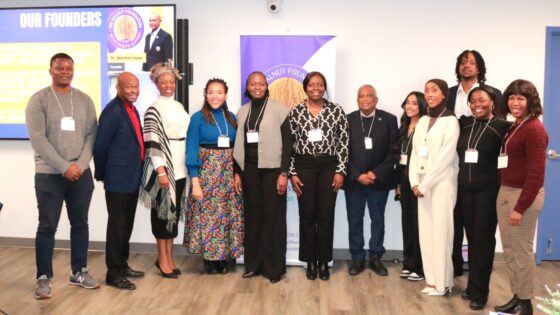on
BY SIMONE J. SMITH
In the workplace, doctors and nurses are complaining about the lack of equipment in health facilities. Over the months, junior doctors that have worked in hospitals across the island have lost patients due to lack of equipment.
With the increase in patients, health practitioners have found themselves experiencing stress. This shift has negatively affected the performance of these practitioners because patient demand has increased, but facilities remain understaffed.
Also revealed in this situation is the scarcity of resources available to health clinics on the island. The flood of patients has caused issues such as a delay of blood work and a shortage of medication. There have even been situations where patients had to purchase the medical supplies necessary for their surgery, and in Mandeville Hospital, people are sleeping on the ground.
Jamaica’s healthcare system has been hard hit by this pandemic, but thankfully, a committed group of individuals and organizations have rallied support for the island are actively finding ways to ensure that citizens in Jamaica are provided with the best healthcare possible.
On Saturday, November 20th, 2021, from 10:00 am-10:00 pm, the Kiwanis Club of Toronto Caribbean hosted JAMM-A-THON, a specific fundraising initiative with the goal of shipping medical supplies and equipment to hospitals in Jamaica. The theme was ‘Play It Forward’ a play on words, to spark the charitable spirit of Jamaicans, and Caribbean’s living in the diaspora. They are working tirelessly to assist hospitals that are in desperate need of resources and support.
The Kiwanis Club of Toronto Caribbean is the newest club in Toronto and the Greater Toronto Area and is a part of the Kiwanis International, a global community of clubs, members and partners dedicated to improving the lives of children one community at a time for over 100 years. Today, we stand with more than 550,000 members from K-Kids, Key Club, Circle K to Kiwanis Clubs and many ages in between in over eighty countries and geographic areas. Each community has different needs, and Kiwanis empowers members to pursue creative ways to serve the needs of children, such as fighting hunger, improving literacy and offering guidance.
On Saturday, people across Toronto, and around the world were entertained for twelve hours by four DJ’s: Rosie Murray, Marcus Ouja, Doc Jules and Dave Toomer. As I sat down writing articles and jamming to some Mary J. Blige and Chakka Khan, I had an opportunity to speak with the President of The Kiwanis Club of Toronto Caribbean, Sharon Barnes-Simmonds, who I could tell had been working hard. We had a brief dialogue, and Sharon filled me in on how she became involved with this initiative.
“I learned about what was happening in Jamaica hospitals from a friend of mine here in Toronto. She happens to be the sister of Michael Sharpe, the famed journalist from Jamaica who died from COVID-19 complications after receiving his vaccination. I only bring that up because this was when I learned about the conditions in the hospitals.”
COVID-19 has put a strain on resources in Jamaica, and it is the people who are suffering. Sharon’s friend reached out to her because she knew that she had the means to do something to help out. Sharon is involved in several programs in Toronto, but when she heard the story, she knew that Kiwanis would be the best platform to assist with this task.
“I reached out to the Jamaican Consulate General, and he was already thinking about doing something like this,” Sharon shares with me. “He has a positive working relationship with Rahul Singh, and both of them were like, ‘Let’s get it done.’
About three weeks ago, Rahul reached out and told me that he was ready to go with two barrels. The timing has been impeccable.”
With the containers, it made the fundraiser even more feasible. Now they had a target goal for this project.
“Our target goal is $20,000. We don’t have a full cost as to the amount to ship one container. We turned to our affiliates at the Kiwanis Club of Toronto Foundation and asked them to match our donation, but we did not get the request in on time. We have asked other clubs within Kiwanis to assist us with this project, and I believe that we will be able to get their support.”
It is at times like this when you see the spirit of good nature in our community. There is another private donor who donated 1,000 cotton thermal blankets. These have to be shipped as well. Half of them are going to Spanish Town Hospital, which is the main contact from the Kiwanis Club of Spanish Town. There have also been 150,000 COVID-19 gowns to protect hospital workers, and the other container has disinfectant wipes and sanitizing napkins, donated through Global Medics.
The supplies have been split between Spanish Town Hospital and six other hospitals that include:
- University Hospital of the West Indies
- BustaMante Children’s Hospital of Jamaica
- Black River Hospital
- Mandeville Hospital
- Port Maria Hospital
- Princess Margaret Hospital
“We are collaborating with the Ministry of Health in Jamaica so that we don’t have to pay duties,” Sharon tells me. “The Ministry of Health and Wellness in Jamaica is working closely with us as well. Our work is not done because we are also trying to source mattress and beds to help with the shortage that we heard about at Mandeville Hospital.”
The Kiwanis Club of Toronto Caribbean and the Consulate General of Jamaica Toronto, extends their gratitude to their partners: Global Medic as they have secured two shipping containers with approximately C$500,000.00 of medical supplies and equipment; the Toronto Kiwanis Foundation and the Kiwanis Club of Riverdale Foundation for their support in assisting with the shipping costs.
They are passionate about making a difference. Helping kids grow and succeed is at the heart of everything they do. As sons and daughters of the Caribbean, let us all do our part to ensure that we are taking care of our families, and communities. You can donate at:
Kiwanis Club of Toronto Caribbean PayPal
https://www.paypal.com/donate/?hosted_button_id=YGYKQ5H56X37A
Email Transfer to: kctorontocaribbean@gmail.com
Stay in the loop with exclusive news, stories, and insights—delivered straight to your inbox. No fluff, just real content that matters. Sign up today!
We, as humans are guaranteed certain things in life: stressors, taxes, bills and death are the first thoughts that pop to mind. It is not uncommon that many people find a hard time dealing with these daily life stressors, and at times will find themselves losing control over their lives. Simone Jennifer Smith’s great passion is using the gifts that have been given to her, to help educate her clients on how to live meaningful lives. The Hear to Help Team consists of powerfully motivated individuals, who like Simone, see that there is a need in this world; a need for real connection. As the founder and Director of Hear 2 Help, Simone leads a team that goes out into the community day to day, servicing families with their educational, legal and mental health needs.Her dedication shows in her Toronto Caribbean newspaper articles, and in her role as a host on the TCN TV Network.













